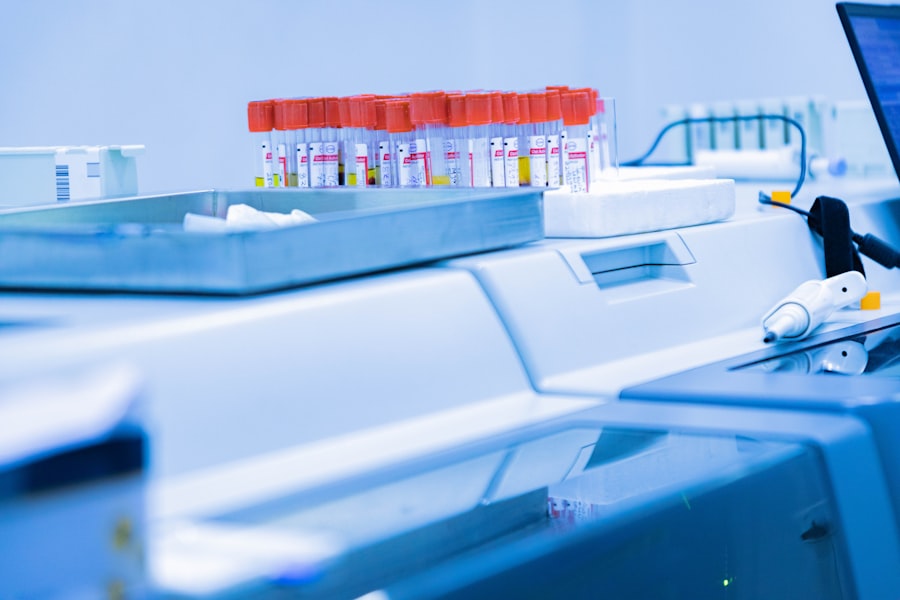Clinical trials are a cornerstone of medical research, providing the necessary framework to evaluate the safety and efficacy of new treatments, drugs, and medical devices. As the complexity of clinical trials has increased, so too has the need for robust systems to manage the myriad of tasks involved in these studies. A Clinical Trials Management System (CTMS) is a specialized software solution designed to streamline the planning, tracking, and management of clinical trials.
By integrating various functions such as study planning, subject recruitment, data collection, and regulatory compliance, a CTMS serves as a centralized hub for all trial-related activities. The evolution of clinical trials has been marked by an increasing emphasis on efficiency and accuracy. Traditional methods of managing clinical trials often relied on disparate systems and manual processes, leading to inefficiencies and potential errors.
The introduction of CTMS has revolutionized this landscape by providing a comprehensive platform that enhances operational efficiency. With the ability to automate routine tasks, manage documentation, and facilitate real-time data access, CTMS not only improves the management of clinical trials but also contributes to the overall quality of research outcomes.
Key Takeaways
- Clinical Trials Management Systems (CTMS) enhance the efficiency and organization of clinical trials.
- Key features include data management, scheduling, regulatory compliance, and reporting tools.
- CTMS streamline data collection and analysis, improving accuracy and speed.
- They facilitate better collaboration and communication among researchers, sponsors, and regulatory bodies.
- Future trends focus on advanced analytics, AI integration, and improved user interfaces for clinical trial management.
Benefits of Implementing a Clinical Trials Management System
The implementation of a Clinical Trials Management System offers numerous benefits that can significantly enhance the efficiency and effectiveness of clinical research. One of the primary advantages is the ability to centralize data management. By consolidating all trial-related information into a single platform, researchers can easily access and analyze data without the need to navigate multiple systems or databases.
This centralization reduces the risk of data discrepancies and ensures that all stakeholders are working with the most current information. Another key benefit is improved compliance with regulatory requirements. Clinical trials are subject to stringent regulations from agencies such as the Food and Drug Administration (FDA) and the European Medicines Agency (EMA).
A CTMS can help ensure that all necessary documentation is maintained and that trial protocols are followed meticulously. By automating compliance checks and providing audit trails, a CTMS minimizes the risk of non-compliance, which can lead to costly delays or even trial termination. Furthermore, the system can facilitate easier reporting to regulatory bodies, streamlining the submission process and enhancing transparency.
Key Features of a Clinical Trials Management System

A robust Clinical Trials Management System is characterized by several key features that cater to the diverse needs of clinical research. One essential feature is study planning and protocol management. This functionality allows researchers to design and manage study protocols efficiently, including defining objectives, methodologies, and timelines.
By providing templates and tools for protocol development, a CTMS simplifies the initial stages of trial planning. Another critical feature is subject recruitment and enrollment tracking. Effective recruitment is vital for the success of any clinical trial, and a CTMS can streamline this process by providing tools for identifying potential participants based on predefined criteria.
Additionally, it can track enrollment progress in real-time, allowing researchers to adjust strategies as needed to meet recruitment goals. This feature not only enhances efficiency but also helps ensure that trials are completed on schedule. Data management capabilities are also central to a CTMS.
The system should facilitate electronic data capture (EDC), allowing researchers to collect data directly from study sites in real-time. This capability reduces the reliance on paper-based methods, which can be prone to errors and delays. Furthermore, advanced analytics tools integrated within a CTMS enable researchers to analyze data quickly and effectively, providing insights that can inform decision-making throughout the trial process.
Streamlining Data Collection and Analysis with a Clinical Trials Management System
| Metric | Description | Before CTMS Implementation | After CTMS Implementation | Improvement |
|---|---|---|---|---|
| Data Entry Time | Average time taken to enter clinical trial data | 120 minutes per patient | 45 minutes per patient | 62.5% reduction |
| Data Accuracy | Percentage of data entries without errors | 85% | 98% | 13% increase |
| Query Resolution Time | Average time to resolve data queries | 7 days | 2 days | 71% faster |
| Data Accessibility | Time to access trial data for analysis | 3 days | Immediate (real-time) | 100% improvement |
| Report Generation Time | Time to generate trial progress and analysis reports | 5 days | 1 day | 80% reduction |
| Compliance Rate | Adherence to regulatory and protocol requirements | 90% | 99% | 9% increase |
Data collection is one of the most critical aspects of clinical trials, as it directly impacts the validity of study results. A Clinical Trials Management System enhances this process by enabling electronic data capture (EDC), which allows for real-time data entry at study sites. This method not only accelerates data collection but also minimizes transcription errors associated with manual data entry.
By utilizing mobile devices or tablets, site staff can input data directly into the system as it is collected, ensuring that information is accurate and up-to-date. Moreover, a CTMS often includes built-in validation checks that help ensure data integrity at the point of entry. These checks can flag inconsistencies or missing information immediately, allowing researchers to address issues promptly rather than discovering them during later stages of analysis.
This proactive approach to data quality significantly enhances the reliability of study findings. Once data is collected, analysis becomes paramount in drawing meaningful conclusions from clinical trials. A CTMS typically incorporates advanced analytics tools that facilitate comprehensive data analysis.
Researchers can generate reports and visualizations that highlight trends, correlations, and anomalies within the data set. This capability not only aids in understanding study outcomes but also supports regulatory submissions by providing clear evidence of findings. The ability to analyze data efficiently allows for quicker decision-making regarding trial modifications or future research directions.
Improving Collaboration and Communication Among Clinical Trial Stakeholders
Effective collaboration among stakeholders is essential for the success of clinical trials. A Clinical Trials Management System fosters this collaboration by providing a centralized platform where all parties—researchers, sponsors, site staff, and regulatory bodies—can access relevant information in real-time. This transparency reduces misunderstandings and ensures that everyone involved is aligned with study objectives and timelines.
Communication tools integrated within a CTMS further enhance collaboration by facilitating discussions among stakeholders. Features such as messaging systems, document sharing capabilities, and task assignment functionalities allow team members to communicate efficiently without relying on external email chains or meetings. This streamlined communication not only saves time but also helps maintain focus on critical tasks related to trial management.
Additionally, a CTMS can support multi-site trials by enabling consistent communication across various locations. Site coordinators can share updates, challenges, and best practices with one another through the system, fostering a sense of community among sites involved in the same study. This collaborative environment can lead to improved recruitment strategies, enhanced data quality, and ultimately more successful trial outcomes.
Ensuring Regulatory Compliance and Quality Control with a Clinical Trials Management System

Regulatory compliance is a fundamental aspect of conducting clinical trials, as it ensures that studies adhere to ethical standards and legal requirements. A Clinical Trials Management System plays a crucial role in maintaining compliance by automating many aspects of regulatory oversight. For instance, it can track essential documents such as informed consent forms, ethics committee approvals, and regulatory submissions, ensuring that all necessary paperwork is completed accurately and on time.
Quality control mechanisms embedded within a CTMS further enhance compliance efforts by providing tools for monitoring trial processes and outcomes. Researchers can set up automated alerts for critical milestones or deviations from protocols, allowing for timely interventions when issues arise. This proactive approach not only mitigates risks associated with non-compliance but also fosters a culture of quality within research teams.
Moreover, audit trails generated by a CTMS provide comprehensive records of all actions taken throughout the trial process. These trails are invaluable during regulatory inspections or audits, as they demonstrate adherence to protocols and highlight any corrective actions taken in response to identified issues. By ensuring thorough documentation and accountability, a CTMS helps build trust with regulatory agencies and enhances the credibility of research findings.
Case Studies: Successful Implementation of Clinical Trials Management Systems
Numerous organizations have successfully implemented Clinical Trials Management Systems to enhance their research capabilities. For example, a prominent pharmaceutical company faced challenges in managing multiple concurrent trials across various global sites. By adopting a CTMS, they were able to centralize their trial management processes, resulting in improved visibility into study progress and resource allocation.
The system facilitated real-time data sharing among sites, leading to faster decision-making regarding patient recruitment strategies and protocol amendments. Another case involves a clinical research organization (CRO) that struggled with inefficient data collection methods during its trials. After implementing a CTMS with electronic data capture capabilities, they experienced a significant reduction in data entry errors and an acceleration in data availability for analysis.
This transformation allowed them to provide sponsors with timely updates on trial progress and results, ultimately enhancing their reputation in the industry. These case studies illustrate how tailored implementations of CTMS can address specific challenges faced by organizations in the clinical research landscape. By leveraging technology effectively, these organizations have not only improved their operational efficiency but also contributed to advancing medical knowledge through successful trial outcomes.
Future Trends in Clinical Trials Management Systems
As technology continues to evolve, so too will Clinical Trials Management Systems adapt to meet the changing needs of clinical research. One emerging trend is the integration of artificial intelligence (AI) and machine learning (ML) into CTMS platforms. These technologies have the potential to enhance data analysis capabilities significantly by identifying patterns within large datasets that may not be immediately apparent to human researchers.
AI-driven insights could inform patient recruitment strategies or optimize trial designs based on historical data. Another trend is the increasing emphasis on patient-centric approaches in clinical trials. Future CTMS solutions may incorporate features that enhance patient engagement throughout the trial process.
For instance, mobile applications linked to CTMS could allow patients to report symptoms or side effects directly from their devices, improving data collection while also empowering participants in their own care journey. Additionally, as remote monitoring technologies become more prevalent in clinical research, CTMS platforms will likely evolve to support decentralized trial models more effectively. This shift could enable researchers to conduct studies with greater flexibility while maintaining rigorous oversight through integrated monitoring tools.
In conclusion, as clinical trials continue to grow in complexity and scope, Clinical Trials Management Systems will play an increasingly vital role in ensuring efficient management, regulatory compliance, and high-quality research outcomes. The future promises exciting advancements that will further enhance these systems’ capabilities and their impact on clinical research.




